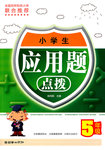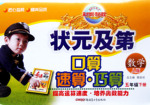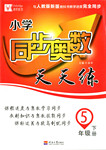题目内容
【题目】Science textbooks around the world have become suddenly out of date. Four new chemical elements(元素)have been added to the periodic table. A big decision now lies ahead-elements 113,115,117 and 118 need to be given their official names and symbols.
New elements can be named after a mythical(神话的) concept, a mineral, a place or country, a property(性质) or a scientist. The names have to be unique and maintain “historical and chemical consistency”. This means a lot of “-iums”.
“They’re Latinising the name,” explains chemist Andrea Sella. “The most recent tradition is to name them after places or people.” The places chosen tend to be where the element was discovered or first produced.
No one has yet named an element after themselves but many elements are named in honour of important scientists. Albert Einstein was given einsteinium. This can also be a way of righting the wrongs of the past. “Lise Meitner was really the chemist who spotted nuclear fission(核裂变)but she was never really recognised for it because she was Jewish and a woman, ” says Sella. “Giving an element a name that reminds us of her is greatly important. ”
The naming process isn’t quick. The scientists who discovered them will start things off by suggesting a name. But it will be down to the International Union of Pure and Applied Chemistry (IUPAC) to approve it. A special division of the US-based group has to accept the suggestion. Then there is a public review period of five months before the IUPAC gets the final approval. Once it’s ready, the name is announced in the scientific journal Pure and Applied Chemistry.
Naming an element is not just about functionality. Names are always important.
【1】What is the function of Paragraph 1?
A. To introduce the topic.
B. To present a finding.
C. To point out a problem.
D. To call for a decision,
【2】Why was Lise Meitner mentioned in the naming process in Paragraph 4?
A. To praise her.
B. To build her reputation.
C. To correct the wrongs of the past.
D. To end racial discrimination
【3】Who has the final say in the naming process of an element?
A. The scientist who discovered them.
B. The special division of US-based group.
C. The scientific journal Pure and Applied Chemistry,
D. The International Union of Pure and Applied Chemistry.
【4】What i$ the passage mainly about?
A. How elements get their names.
B. Why science textbooks are out of date.
C. How new elements are discovered.
D. How functional naming an element is.
【答案】
【1】A
【2】C
【3】D
【4】A
【解析】本文为一篇科普题材的说明文,文章主要介绍了 每当一个新元素被发现之时我们该如何对其进行命名,该用什么对其进行命名,文章中介绍了我们可以用某段神话故事,某种物质或是某个地名对其进行命名文章的最后部分介绍了当一个元素被发现之后又当如何将其命名的名字得到许可。
【1】主旨大意题,同归题目我们可以将答案定位到文章的第一段,A选项意为引出话题, B选项意为展示发现,C选项意为指出问题,D选项意为寻求建议,通过综合分析该题应当选择A项引出话题。
【2】细节理解题,通过问题我们可以将答案定位到文章的第四段“ This can also be a way of righting the wrongs of the past.”这句话意为“这也可能是一种纠正过去错误的方式”因而该题选择C项。
【3】细节理解题,通过分析问题“对于元素的命名过程谁具有最终得话语权?”可以将答案定位到文章的第五段“But it will be down to the International Union of Pure and Applied Chemistry (IUPAC) to approve it.”故该题选择D项。
【4】主旨大意题,A选项意为“元素是如何获得自己的名字?”B选项意为“为什么科学文本总是过期?”C选项意为新元素是如何被发现的?”D项意为命名元素真是一项颇具程序性的事!”BCD三项不符合题意,故选择A项。

 应用题点拨系列答案
应用题点拨系列答案 状元及第系列答案
状元及第系列答案 同步奥数系列答案
同步奥数系列答案【题目】In a society such as the United states or Canada, which has many national, religious, and cultural differences, people highly value individualism—the differences among people. Teachers place a lot of importance on the qualities that make each student special. The educational systems in these countries show these values. Students do not memorize information. Instead, they work individually and find answers themselves. There is often discussion in the classroom. At an early age, students learn to form their own ideas and opinions.
In most Asian societies, by contrast, the people have the same language, history, and culture. Perhaps for this reason, the educational system in much of the Orient reflects society’s belief in group goals and purposed rather than individualism. Children in China, Japan, and Korea often work together and help one another on assignments. In the classroom, the teaching methods are often very formal. The teacher lectures, and the students listen. There is not much discussion. Instead, the students recite rules or information that they have memorized.
There are advantages and disadvantages to both of these systems of education. For example, one advantage to the system in Japan is that students there learn much more math and science than American students learn by the end of high school. They also study more hours each day and more days each year than North Americans do. The system is difficult, but it prepares students for a society that values discipline and self-control. There is, however, a disadvantage. Memorization is an important learning method in Japanese schools, yet many students say that after an exam, they forget much of the information that they have memorized.
The advantage of the educational system in North American, on the other hand, is that students learn to think for themselves. The system prepares them for a society that values creative ideas. There is , however, a disadvantage. When students graduate from high school, they haven’t memorized as many basic rules and facts as students in other countries have..
Students in the US and 【1】 | Students in China, Japan and Korean | |
What do they value? | 【2】 | 【3】 goals and purposes |
Ways of study | working individually | listen to the teachers |
forming their own ideas and opinions | memorizing and 【4】 | |
a lot of discussion in the classroom | not much discussion | |
【5】 | Learning to think for themselves | learning much more math and 【6】 by the end of high 【7】 |
studying more hours each day and more days each year | ||
good for a society that values 【8】 ideas. | good for a society valuing 【9】 and self-control | |
disadvantages | students haven’t memorized many basic rules and facts when before 【10】 | Information is forgotten easily |